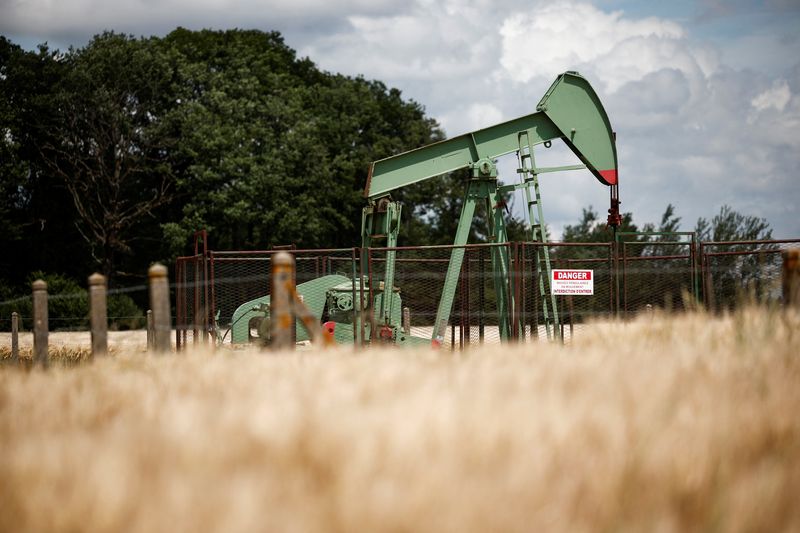
By Jeslyn Lerh
SINGAPORE (Reuters) -Oil prices fell about 1% on Wednesday, as shifting U.S. tariff policies fuelled uncertainty, prompting traders to weigh the potential impact of the U.S.-China trade war on economic growth and energy demand.
Brent crude futures fell 66 cents, or 1.0%, to $64.01 per barrel by 0630 GMT, while U.S. West Texas Intermediate crude dropped 69 cents, or 1.1%, to $60.64. Both benchmarks fell 0.3% on Tuesday.
Global oil demand is expected to grow at its slowest rate for five years in 2025 and U.S. production gains will also taper off, due to U.S. President Donald Trump’s tariffs on trading partners and their retaliatory moves, the International Energy Agency said on Tuesday.
"Investors continue to struggle in finding a catalyst to drive a more meaningful rebound, as global growth is widely expected to slow ahead with U.S. tariffs, which puts oil demand in jeopardy," said Yeap Jun Rong, market strategist at IG.
"The downward trend for oil prices remains intact and we may expect initial optimism around tariff rollbacks to fade, and the underlying macro headwinds on upcoming economic data could bring markets back to a more sobering reality," Yeap said.
World oil demand this year is expected to rise by 730,000 barrels per day, the IEA said, sharply down from the 1.03 million bpd it expected last month. The reduction is larger than a cut in demand estimates made on Monday by the Organization of the Petroleum Exporting Countries.
The tariff dispute between the U.S. and China remains the most significant threat to the global economy and oil demand, said Imad Al-Khayyat, a research lead at London Stock Exchange Group (LON: LSEG ).
"Each passing week without signs of easing in this standoff increases the likelihood of a global recession and lowers the price ceiling," Al-Khayyat said.
Concerns over Trump’s escalating tariffs, combined with rising output from OPEC+, a group comprising OPEC and its producing allies such as Russia, have already dragged oil prices down roughly 13% so far this month.
The uncertainty surrounding trade tensions has led several banks, including UBS, BNP Paribas (OTC: BNPQY ) and HSBC, to cut their crude price forecasts.
Trump has ratcheted up tariffs on Chinese goods to eye-watering levels, prompting Beijing to slap retaliatory duties on U.S. imports in an intensifying trade war between the world’s two biggest economies that markets fear will lead to a global recession.
Meanwhile, U.S. crude oil stocks rose 2.4 million barrels in the week ended April 11, while gasoline inventories fell 3 million barrels and distillate stocks dropped 3.2 million barrels, market sources said, citing American Petroleum Institute figures on Tuesday. [API/S][EIA/S]
